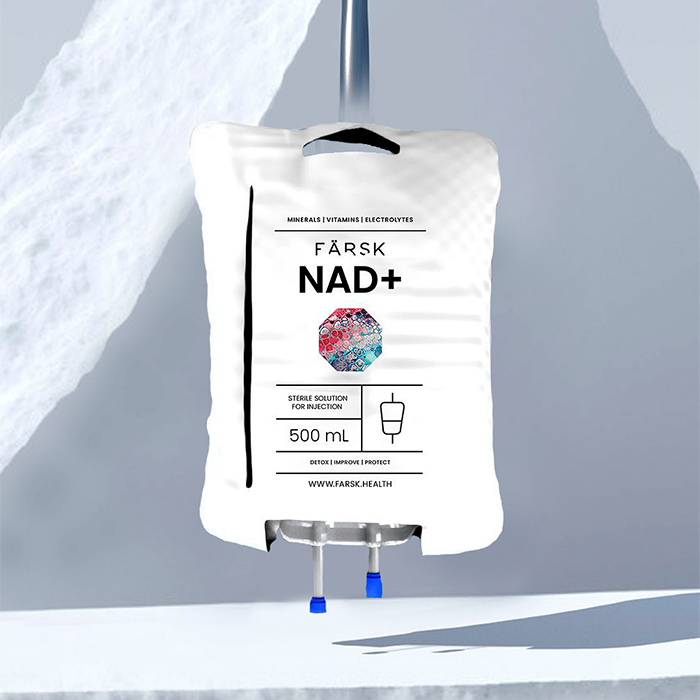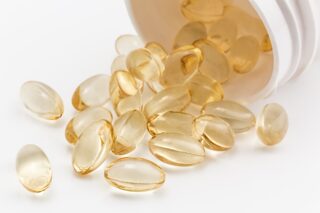In the ever-evolving landscape of health and wellness, a new buzzword has emerged: NAD+ therapy. This innovative approach promises to revolutionize the way we think about aging and overall well-being. As more people seek out NAD shots and infusions, it’s crucial to separate fact from fiction. This article delves into the science behind NAD, its potential benefits, and how it stands apart from traditional anti-aging methods.
I’ll also talk about safety and give you ideas to help you decide if NAD+ therapy is right for you. I’ll also stress the importance of getting help from a doctor. Whether you’re a wellness enthusiast or simply curious about the latest trends, this exploration will equip you with the knowledge needed to make informed decisions. If you’re ready to take the next step, book an appointment on my website, www.drshawn.ca to discuss your options with a professional.
What is NAD?
NAD, or Nicotinamide Adenine Dinucleotide, is a molecule naturally produced by our bodies that plays a vital role in numerous biological processes. From metabolism to DNA repair, NAD is essential for maintaining optimal health. As we age, however, our NAD levels naturally decline, leading to a decrease in cellular function and energy production. This is where NAD+ therapy comes into play. By replenishing NAD levels, proponents claim a wide range of benefits, including improved energy, enhanced cognitive function, and even potential anti-aging effects. But how does NAD+ therapy compare to traditional anti-aging methods, and what are the potential risks involved? This article aims to give you a complete overview, help you understand the details of NAD+ therapy, and help you get better health and wellness.
Understanding NAD
In the intricate dance of life within our bodies, few molecules play as pivotal a role as NAD. This important coenzyme is found in every cell. It is a key part of many biological processes that keep us working well.
NAD is at the center of everything, from making energy that helps us live every day to breaking down food.
NAD’s importance extends beyond energy production and metabolism. It is also instrumental in the repair of DNA, ensuring the integrity of our genetic material, and in cell signaling, facilitating the communication that allows our cells to work together harmoniously.
The oxidized form of NAD, known as NAD+, is particularly noteworthy for its involvement in several cellular processes that contribute to healthy aging. By maintaining optimal levels of NAD+, our bodies can better combat the effects of aging and preserve overall health and vitality.
However, as we age, our NAD+ levels naturally decline. This decrease is associated with a lower efficiency in various cellular functions, leading to reduced energy production, impaired metabolism, and diminished DNA repair capabilities. The result is a cascade of effects that contribute to the aging process and can impact our overall well-being.
In response to this natural decline, there has been a growing interest in therapies aimed at replenishing NAD+ levels. One such approach is NAD+ infusions, which have gained attention for their potential to counteract the effects of aging. By restoring NAD+ to optimal levels, these therapies aim to enhance energy, improve cognitive function, and promote overall well-being.
As more research comes out, it’s becoming clearer what NAD+ infusions can do. NAD+ supplementation may be a good way for people to stay healthy and active as they get older. If you’re interested in exploring this innovative approach, consider booking an appointment to discuss your options with a professional.

NAD+ replenishment: unveiling the potential benefits
NAD+ is a vital coenzyme that plays a pivotal role in numerous biological functions, including energy production, metabolism, and DNA repair. As we age, our bodies naturally experience a decline in NAD+ levels, which can lead to impaired cellular functions and contribute to the aging process. NAD+ infusions have become a promising treatment to fight these effects. They can offer many benefits that can greatly improve overall health.
One of the most notable advantages of NAD+ replenishment is its potential to improve cognitive function. Studies have shown that increasing NAD+ levels can make you feel more clear, focused, and remember things better. This makes it a good choice for people who want to maintain or improve their mental health. NAD+ injections have also been linked to more energy. This makes them a popular choice for athletes and fitness fans who want to improve their performance. NAD+ infusions are different than oral supplements because they bring the coenzyme directly into the bloodstream, without going through the digestive system.
Beyond its cognitive and energy-boosting benefits, NAD+ therapy shows promise in managing various health conditions. Research suggests that it may play a role in mitigating the effects of neurodegenerative disorders, such as Alzheimer’s and Parkinson’s disease, by supporting neuronal health and function. NAD+ infusions have also been studied as a possible treatment for chronic fatigue syndrome. They can help people feel less tired by making their cells make more energy.
For those considering NAD+ therapy, our Toronto clinic offers a range of professional services tailored to individual needs. Whether you’re looking to enhance your cognitive function, boost your energy levels, or manage specific health conditions, consulting with a healthcare provider can help you determine if NAD+ infusions are right for you. By knowing the possible benefits and working with a professional, you can make a good choice about adding this new therapy to your wellness routine.

NAD+ vs. traditional anti-aging methods: exploring the differences
NAD+ therapy represents a significant departure from traditional anti-aging methods, offering a unique approach to rejuvenation and overall wellness. Unlike traditional techniques that often focus on external appearances, such as cosmetic procedures and topical treatments, NAD+ infusion and injection therapies aim to revitalize cells at a fundamental level. This cell renewal can lead to more energy, better thinking, and a feeling of well-being. It can also address internal factors that cause aging.
One of the most notable differences between NAD+ therapy and traditional anti-aging methods is their impact on cellular health. NAD+ therapy targets the root causes of aging by influencing crucial biological processes such as energy production and DNA repair. By boosting NAD+ levels, these therapies can help cells function more efficiently and slow down the aging process. Traditional methods often ignore these main reasons, instead focusing on small improvements that may not address the bigger problems of aging.
Moreover, NAD+ therapy offers potential cognitive and neuroprotective benefits that conventional anti-aging techniques typically do not address. Research shows that NAD+ is important for brain health. Getting optimal levels through supplementation may help improve how well you think and protect against diseases that damage your brain.
Combining NAD+ therapy with other lifestyle changes can make for a stronger effect. This can offer a more complete way to improve health and wellness than traditional methods alone. NAD+ therapy can help you live a healthier and more active lifestyle when combined with a healthy diet, regular exercise, and stress management techniques. It can also help you feel better when you work with a health coach. For people who want a complete approach to anti-aging, NAD+ therapy with Dr. Shawn is a new solution that goes beyond just making skin look better. It also addresses the internal parts of aging and helps overall health.
Safety considerations and potential side effects
NAD infusions and injections have become very popular because they might help people. But it’s important to think about the safety and possible side effects of this therapy. Generally, NAD therapy is well-tolerated by most individuals, with minimal reported adverse reactions. However, it is essential to be aware of the possibility of mild, temporary side effects such as nausea, headaches, and flushing. These reactions are typically short-lived and resolve quickly after treatment.
One of the key safety considerations is consulting with a healthcare professional before starting NAD therapy. This is especially important for people with past medical problems. A thorough exam can help decide if you are fit to have the procedure and address any health concerns. Also, some groups, like pregnant or breastfeeding women, may need more attention. The effects of NAD infusions on these groups are not yet fully understood.
Adhering to recommended dosages is another critical safety measure. Excessive use of NAD can lead to more severe side effects, emphasizing the importance of following professional guidance. In Toronto, there are many clinics that offer NAD therapy. It is important to choose a good provider who can give you detailed consultations and treatment plans that are right for you.
Ultimately, while NAD infusions and injections show promising potential, safety should always be a priority. By talking to an experienced doctor and following, you can reduce risks and get the most out of this new therapy.
Seeking professional guidance: when to consider NAD+ therapy
Considering NAD+ therapy is a personal decision that often arises from specific health concerns or symptoms. People who have trouble sleeping, experience cognitive decline, or get sick more often as they age, might find that NAD+ infusions can help them feel better and feel younger.
Also, people with metabolic disorders, brain diseases, or who want to feel better may benefit from the healing properties of NAD+. It’s important to note that the efficacy of NAD+ therapy can vary, making professional guidance essential.
Before embarking on NAD+ therapy, it is crucial to consult with a healthcare professional. A qualified provider can assess your individual needs, medical history, and current health status to determine if NAD+ infusions are suitable for you. This assessment helps ensure that the therapy aligns with your health goals and does not interfere with any existing treatments or medications. A visit with a doctor like me can give you detailed tests and suggestions that are right for you. This will make sure you get the best care possible.
Once you begin NAD+ therapy, ongoing monitoring by a healthcare provider is vital. Regular check-ins allow your provider to track your progress, adjust the treatment plan as needed, and address any side effects or concerns that may arise. This personalized approach maximizes the benefits of NAD+ therapy and ensures your safety throughout the process. Talking to a professional not only makes the therapy better, but it also gives you peace of mind because you know your health is in good hands.









